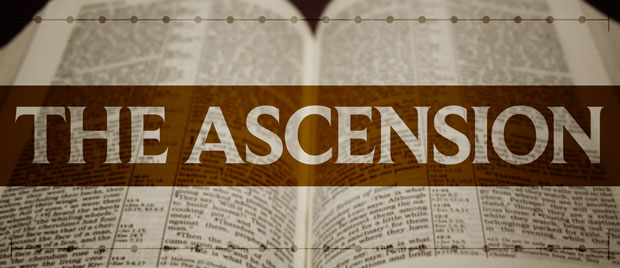The Ascension

Acts 1:6–8 follows the brief introductory prologue and provides the immediate context for the ascension narrative.
So when they had come together. They asked him,
Lord, will you at this time restore the kingdom to Israel?" He said to them, "It is not for you to know times or seasons that the Father has fixed by his own authority. But you will receive power when the Holy Spirit has come upon you, and you will be my witnesses in Jerusalem and in all Judea and Samaria, and to the end of the earth.
The apostles have gathered together with Jesus on the Mount of Olives (cf. Acts 1:12) just east of Jerusalem. The apostles then ask Jesus a question about the kingdom, specifically whether he would "at this time" restore it to Israel.1 His response is highly significant because it reveals the last words Jesus speaks before his ascension. He does not respond to the apostles' question with a direct yes or no. Instead, he tells the apostles that it is not for them to know "times or seasons." They are not to concern themselves with this question. Knowledge of the time of restoration belongs to God.2
Jesus then reminds the apostles of the promise of the Father that they are to await in Jerusalem (cf. 1:5). He tells them they will receive power when the Holy Spirit comes upon them. There is a possible allusion here to Isaiah 32:15. David Pao explains that the possible allusion is significant because in its original context, the reference to the outpouring of the Holy Spirit "signifies the dawn of the Isaianic New Exodus."3 If Jesus is alluding to this text, he is connecting the coming outpouring of the Holy Spirit on the Day of Pentecost in some way with the fulfillment of this Isaianic prophecy. This is significant because in Isaiah and other prophets the new exodus is a way of describing the coming restoration of Israel. If Jesus is alluding to Isaiah 32:15 here, then his words indicate that the restoration the apostles have asked him about is in fact coming. It will not, however, occur in the exact manner that nationalistic Jews might be expecting.
Jesus then gives the apostles their last commission, telling them they will be his witnesses in Jerusalem, Judea, Samaria, and to the end of the earth.4 Again there are possible allusions to Isaiah (cf. Isa. 43:10; 49:6). As Pao explains,
Acts 1:8 . . . becomes the second part of the response to the question in that it confirms the beginning of the process of the restoration of Israel. This process of restoration is portrayed through the model of the Isaianic New Exodus in which the salvation of the Gentiles becomes part of the program of the reconstitution of Israel.5
In short, the restoration of Israel will involve the fulfillment of the task that has been given to the apostles to accomplish. The restoration of Israel will involve their bearing witness to Christ not only in Israel but to the ends of the earth. Their commission introduces a theme that is important throughout the Book of Acts, namely the progress of the Gospel and the expansion of the Church. The Gospel of Jesus will be taken from Jerusalem to the very ends of the earth.6
This article is part of the The Unfolding of Biblical Eschatology collection.
- Barrett explains that this is a "futuristic present." In other words, the apostles are asking, "Are you about to do this now?" [The Acts of the Apostles: A Shorter Commentary (London: T&T Clark, 2002), 5].↩
- I. Howard Marshall, The Book of Acts (Grand Rapids: Eerdmans, 1980), 59.↩
- David W. Pao, Acts and the Isaianic New Exodus (Grand Rapids: Baker Academic, 2002), 95–96.↩
- Many commentators believe this commission acts as a kind of key to the structure of Acts with the apostles preaching in Jerusalem in Acts 1–7, in all Judea and Samaria in 8:1–11:18, and to the ends of the earth in 11:19–28 (See, for example, Bruce 1988a, 36– 37).↩
- Pao 2002, 92.↩
- Brian Rosner makes some important points regarding the progress of the Gospel and the expansion of the Church in Acts: "In describing the progress of the word in Acts several general points may be made: (1) It is not progress in the triumphalistic sense that Acts portrays (contra Conzelmann), for opposition and persecution are pervasive and enduring; (2) the Jewish element of the mission is not removed, as might be suggested by the simple formula of the word going from Jews in Jerusalem to Gentiles in Rome; (3) God is repeatedly given the credit for progress – it is divinely ordained, planned, guided and supported expansion; and (4) the progress theme functions to include the reader in the task of spreading the word, especially with the open-ended ending of the book." ["The Progress of the Word," in Witness to the Gospel: The Theology of Acts, ed. I. Howard Marshall and David Peterson (Grand Rapids: Eerdmans, 1998), 233].↩